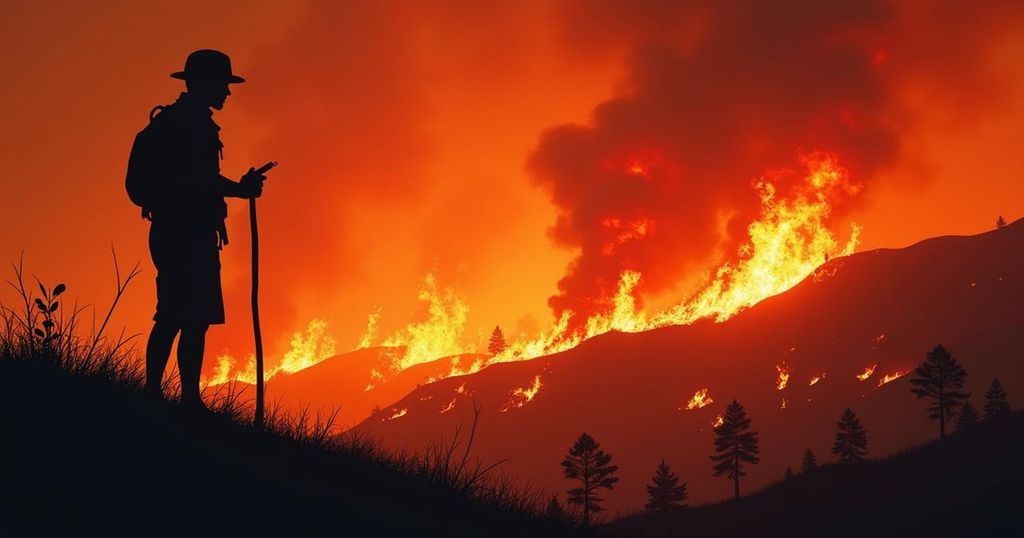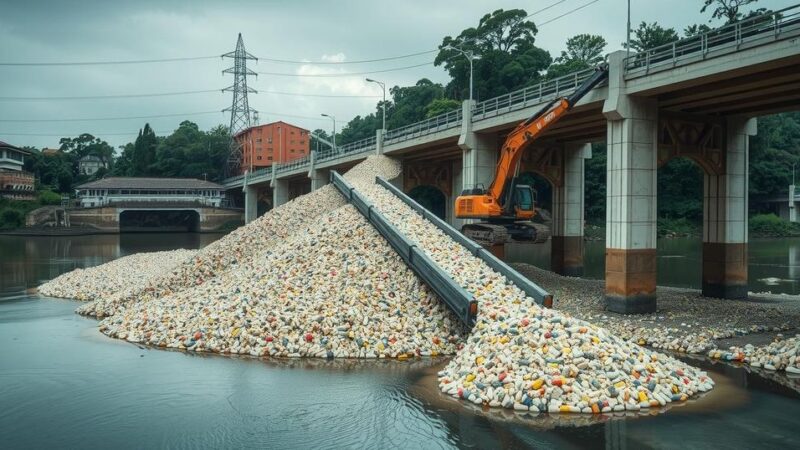Brazil faces unprecedented climate challenges, characterized by record-breaking wildfires and severe drought conditions affecting vast regions. With over 47,000 fire alerts recorded this year, alongside notable economic damages to agriculture, the critical role of human-caused environmental degradation is underscored. President Lula’s administration seeks to position Brazil as a leader in climate action, yet faces scrutiny over the implementation and effectiveness of policies amidst ongoing environmental crises.
In Brazil, the impact of climate change has manifested dramatically, creating a somber and distressing situation characterized by unprecedented fires, severe droughts, and hazardous air quality. The ongoing fires, documented as the worst in over a decade by the World Resources Institute’s Global Forest Watch, highlight a significant escalation in climate-related challenges faced by the nation. Such issues are exacerbated by human activities, particularly in the Amazon and Pantanal regions where deforestation and fires are attributed predominantly to agricultural practices rather than natural growth cycles. In addition to the destructive fires, Brazil experiences increasingly intense rainfall, culminating in devastating flooding, exemplified by recent disasters in Rio Grande do Sul. The country is grappling with its most severe drought in 70 years, affecting vast landscapes and over 1,400 municipalities. The alarming situation has led to significant hydrological challenges, with major waterways like the Madeira River experiencing critically low levels. The resultant fires pose health risks and economic damages, with agribusiness suffering steep losses estimated at R$2 billion. Furthermore, neighboring countries are also reeling from the repercussions of Brazil’s environmental crisis. Despite promising developments under President Lula, who prioritizes climate governance and an enhanced focus on sustainable practices, the administration has been criticized for its slow response and mixed signals regarding climate policy implementation. While a National Climate Authority has been established, clarity on its function remains incomplete, and forthcoming plans to mitigate fires and regulate agricultural activities show signs of delay. Additionally, proposals for expanding fossil fuel extraction and infrastructure development highlight a contradiction with the stated objectives of environmental leadership. Amidst this complex landscape, Brazil’s commitment to an ambitious Nationally Determined Contribution (NDC) for greenhouse gas emissions reduction remains paramount. Addressing the climate crisis necessitates a coherent approach integrating adaptation strategies into national development and a commitment to effective governance at all levels. Now is a pivotal moment for Brazil to demonstrate leadership in combating climate change through decisive and aligned action.
The article discusses Brazil’s current state amidst extreme climate challenges characterized by record-breaking fires and drought conditions. It outlines the role of anthropogenic factors in exacerbating these environmental crises, particularly emphasizing how agricultural expansion leads to deforestation and pollution. As Brazil faces intensified heatwaves and unusual rainfall patterns, the cumulative impact on its ecosystems and public health has become critical, prompting questions about the government’s response and future climate action plans. The piece places significant focus on President Lula’s administration, contrasting improvements from previous leadership while identifying ongoing challenges, including political inertia and inconsistent policy implementation. The goal of achieving climate leadership and decarbonization amid economic pressures is also highlighted, framing Brazil’s path within the context of its responsibilities on the global stage.
In summary, Brazil stands at a crossroads in addressing its climate challenges, as lapses in policy responses and the adverse environmental ramifications of human actions become increasingly apparent. While efforts led by President Lula’s administration show promise in re-engaging with climate science and funding, the delay in establishing a clear and effective action plan raises concerns about the nation’s commitment to comprehensive climate governance. As Brazil continues to suffer from the repercussions of its environmental crisis, the need for immediate and coherent actions becomes more pressing. By committing to ambitious climate goals and enhancing regulatory frameworks, Brazil can potentially lead the global discourse on sustainable development and climate resilience.
Original Source: thecityfix.com







